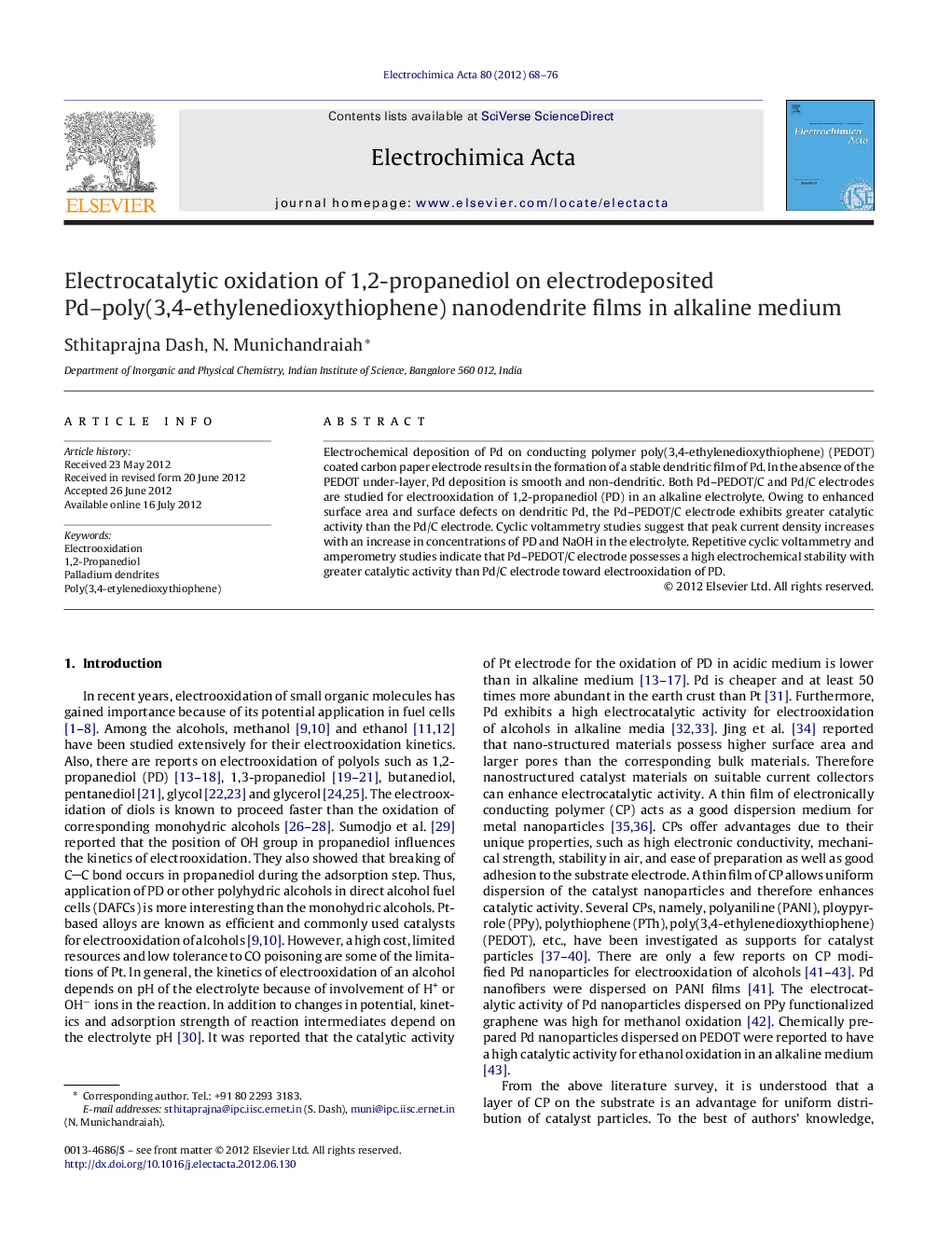| کد مقاله | کد نشریه | سال انتشار | مقاله انگلیسی | نسخه تمام متن |
|---|---|---|---|---|
| 187874 | 459649 | 2012 | 9 صفحه PDF | دانلود رایگان |

Electrochemical deposition of Pd on conducting polymer poly(3,4-ethylenedioxythiophene) (PEDOT) coated carbon paper electrode results in the formation of a stable dendritic film of Pd. In the absence of the PEDOT under-layer, Pd deposition is smooth and non-dendritic. Both Pd–PEDOT/C and Pd/C electrodes are studied for electrooxidation of 1,2-propanediol (PD) in an alkaline electrolyte. Owing to enhanced surface area and surface defects on dendritic Pd, the Pd–PEDOT/C electrode exhibits greater catalytic activity than the Pd/C electrode. Cyclic voltammetry studies suggest that peak current density increases with an increase in concentrations of PD and NaOH in the electrolyte. Repetitive cyclic voltammetry and amperometry studies indicate that Pd–PEDOT/C electrode possesses a high electrochemical stability with greater catalytic activity than Pd/C electrode toward electrooxidation of PD.
Figure optionsDownload as PowerPoint slideHighlights
► Carbon supported Pd–PEDOT and Pd electrode are prepared by electrochemical method.
► Nanodendrites of Pd are formed on the surface of PEDOT modified carbon paper.
► Both catalysts are used for electrooxidation of 1,2-propanediol.
► Nanodendritic Pd–PEDOT/C electrode shows higher electrochemical stability and catalytic activity than Pd/C electrode.
Journal: Electrochimica Acta - Volume 80, 1 October 2012, Pages 68–76